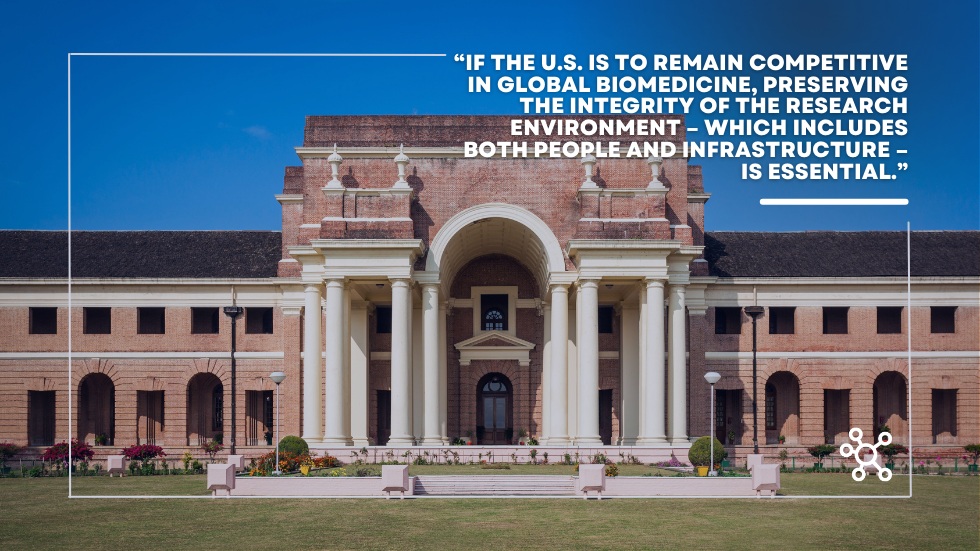Author: Cliff Mintz
Many PhD life scientists who have determined that a tenure-track career is not for them usually set their sights on entry-level R&D jobs at pharmaceutical and biotechnology companies. While both pharmaceutical and biotechnology jobs are generally lumped together under the umbrella of “industrial careers” there are many differences between them.
Big Pharma: Is Bigger Always Better?
The pharmaceutical industry has been in existence for over 100 years and has successfully developed and commercialized thousands of products. Therefore, not surprisingly, big pharmaceutical companies are generally well-capitalized, multinational organizations that globally employ tens of thousands of people. Because of their large size and financial largesse, there are many advantages to working for a big pharmaceutical company.
First, big pharma companies usually offer high salaries, outstanding benefit packages and a variety of perks including flexible spending programs, onsite cafeterias and large annual bonuses. Second, because of their financial stability, R&D budgets at big pharmaceutical companies are generous and research need not be bootstrapped on being conducted using a shoestring budget. Also, as far as job security goes, it is unlikely that a big pharma company will ever go out of business because of bankruptcy! Finally, because of the large number and diversity of jobs at big pharma companies there are ample opportunities for career advancement or even career change
Despite the obvious pros with these companies, inevitably, the terms “large,” “bureaucratic” and “cumbersome” are typically used to describe the way big pharma companies operate. In general, organizational structure is rigid and inflexible, administrative rules and regulations are strictly enforced, collaboration is difficult and for some employees navigating internal politics can be extremely treacherous. Further, R&D projects are mandated by management and scientists have little flexibility in their day-to-day job duties and responsibilities are rigidly defined and adhered to according to job title. Finally decision-making is often painfully slow and multiple layers of management often impede the progress of research projects.
Biotech: “Take A Walk on the Wild Side”
Unlike the pharmaceutical industry, the biotechnology industry is only 50 years old. Yet, despite its youthfulness, the biotechnology industry has become a vibrant and essential sector of the American economy and is threatening to surpass the capabilities of many pharmaceutical companies.
There is general agreement among industry experts that the small size and entrepreneurial spirit of biotechnology companies enhances their scientific nimbleness, allows for quick decision-making (less bureaucracy) and tends to foster collaboration between employees.
Unlike big pharma companies, many biotechnology companies are often strapped for cash and funding ongoing research operations can be challenging. This forces biotechnology companies to hire fewer employees and exclusively focus on developing a single rather than multiple products at a time. Therefore, it should come as no surprise that biotechnology company employees frequently possess a wider range of skill sets and experiences than most pharmaceutical employees because it is likely that biotechnology employees (unlike pharmaceutical employees) will be asked to “wear many different hats” to scientifically advance a project.
Because of the smaller number of employees, the organizational structure of most biotechnology companies is less hierarchical and the culture at these companies is much more “relaxed” and less formal as compared with big pharma companies. Innovation is encouraged (and rewarded) at most biotechnology companies and collaboration between scientists is very common. This is in marked contrast with big pharma where so-called “silos” are prevalent, collaboration is nominal and innovation is difficult.
Despite the many “pros” associated with biotechnology jobs, there is a downside. First, starting salaries are lower and benefits packages are much less generous at biotechnology companies as compared with big pharma. Second, because the financial future for many biotechnology companies is uncertain, job security is an ongoing concern. Finally, unlike big pharma, opportunities for career advancement/change are restricted at most biotechnology companies because of lack of job diversity and financial resources.
Things to Consider with Industrial Careers
While there are obviously many differences between pharmaceutical and biotechnology jobs, the competition for industrial careers can be fierce. To that point, most jobseekers will not have the “luxury” of choosing between a biotechnology and pharmaceutical job to be gainfully employed!
Nevertheless, before beginning an industrial job search, it is important to determine whether big pharma or biotech is the best fit for you. For example, if you want financial security, don’t mind bureaucracy and are accustomed to a slower, more conservative research environment, a pharmaceutical company may be ideal for you. On the other hand, if money is not a high priority, innovation excites you and working in a fast-paced, rapidly changing environment is your thing then perhaps a job at a small biotechnology company may be a good fit for you!





